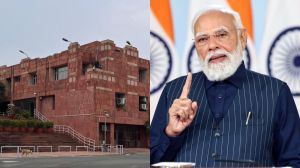It8217;s entirely politics, not law
NEW DELHI, JULY 19: Despite the sanction given by the Maharashtra Government, Bal Thackeray may not even be prosecuted, let alone convicte...

NEW DELHI, JULY 19: Despite the sanction given by the Maharashtra Government, Bal Thackeray may not even be prosecuted, let alone convicted, for his inflammatory editorials during the Bombay riots.
This is because Section 468 CrPC imposes a three-year time-bar on offences that are punishable with imprisonment up to three years. Thackeray has been accused under Section 153-A IPC which deals with promoting enmity between two groups on grounds of religion, race, place of birth, language, etc. This imposes a maximum sentence of three years. Since the editorials in question were published in Saamna way back in January 1993, the alleged offence is clearly time-barred.
But the prosecution still has the option of seeking condonation of the limitation period under Section 473 CrPC. This provision gives the court the discretion to allow a case to be chargesheeted even after the expiry of the limitation period. The court will exercise its discretion only if the prosecution comes up with a good reason for the delay.
The reason for the delay in the case against Thackeray is entirely political. Successive Governments, whether of Congress or the Shiv Sena-BJP combine, sat on the police8217;s application for sanction to prosecute Thackeray. Because of its sensitivity, Section 153-A is one of those few provisions that can be invoked only with the sanction of the state Government concerned.
It will be interesting to see whether the prosecution will actually admit that the case was delayed merely due to political vagaries. Further, whether the court will consider that reason good enough to condone the delay. In any case, the question of limitation is a preliminary issue which will have to be addressed before the court takes cognisance of the chargesheet.
The question of arresting Thackeray, which has already created so much political commotion, will arise only if the court condones the delay.
Thus, there is merit in Manohar Joshi8217;s argument that the case against Thackeray is time-barred.
But there is little validity in his demand that the Centre take action under Article 355 of the Constitution to quash the move to prosecute Thackeray. Since the Maharashtra Government has already given its sanction, the matter is now strictly between the prosecution and the court, which are insulated from executive interference.
Even otherwise, the domain of Article 355 is quite unconnected to the current controversy. The provision deals with the 8220;duty of the Union to protect states against external aggression and internal disturbance.8221; Using this to intervene will be an admission of guilt by the Centre and the Sena.
- 01
- 02
- 03
- 04
- 05































